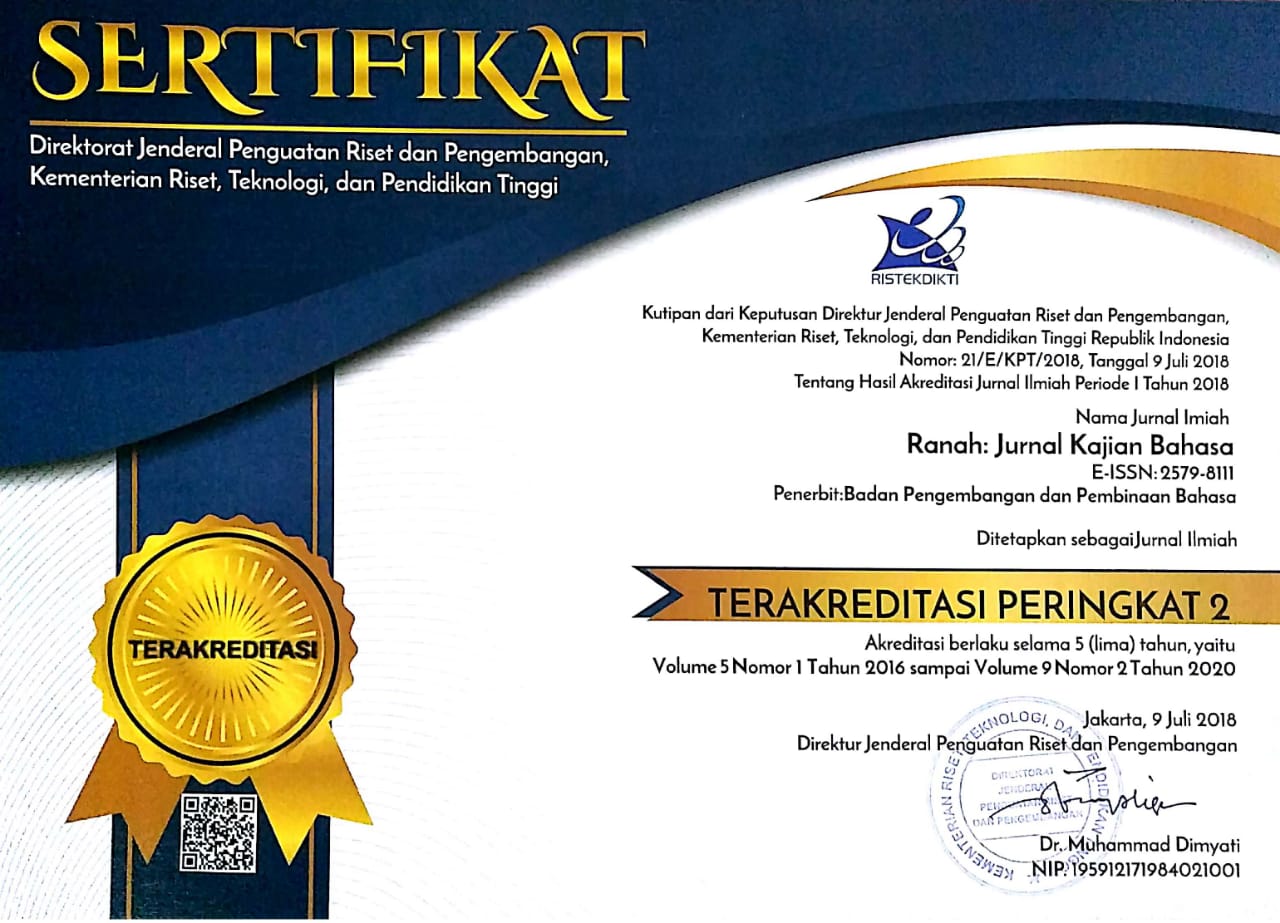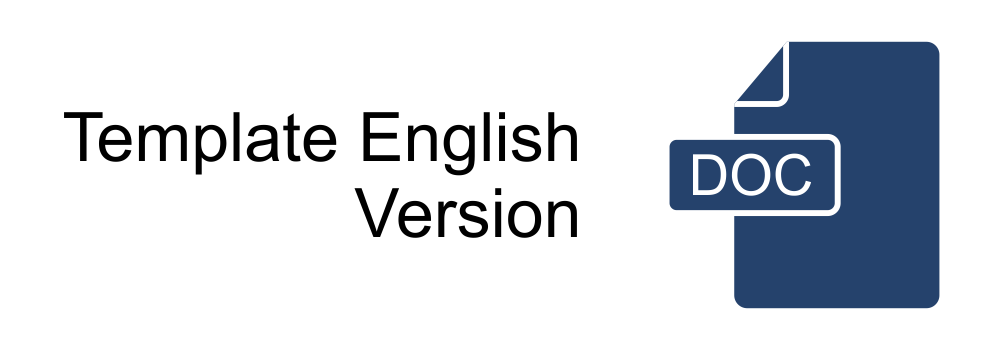Corpus Driven Analysis of the Coronavirus Prevention Handbook
Abstract
Information about coronavirus prevention is important to know because coronavirus as the global pandemic after being designated by the World Health Organization (WHO) for four years. The aim of this article is to find out linguistic evidences from the lexical aspects such as lexical items, lexical categories, lexical cohesion and lexical bundles. Then analyzed it through corpus-driven analysis using AntConc software, this software is employed to process the data. This research uses a mix method and concurrent embedded model, after that downloading the data, observation and documentation as technique of collecting data, while the technique of analysis data use converting and compiling data, reduction data classification data and display data. The results of the quantitative and qualitative analyses show the result of corpus driven analysis through AntConc show the most common of lexical and syntactical aspects such as word classes, and sentences patterns used in the coronavirus prevention handbook.
Abstrak
Informasi tentang pencegahan virus korona penting untuk diketahui, karena virus korona sebagai pandemi global setelah ditetapkan oleh Organisasi Kesehatan Dunia (WHO) setelah berjalan selama satu tahun. Tujuan dari artikel ini adalah untuk mencoba mencari tahu bukti linguistik dari aspek leksikal dan sintaksis. Kemudian dianalisis melalui analisis berbasis korpus menggunakan aplikasi Antconc, perangkat lunak ini digunakan untuk memproses data. Penelitian ini menggunakan metode campuran dan model campuran tidak berimbang, setelah itu mengunduh data, observasi, dan dokumentasi sebagai teknik pengumpulan data, adapun teknik data analisis menggunakan data konversi dan penyusunan data, data klasifikasi data pengurangan dan data tampilan. Hasil analisis kuantitatif dan kualitatif menunjukkan hasil AntConc dan menunjukkan aspek leksikal dan sintaksis yang paling umum seperti kelas kata, dan pola kalimat yang digunakan dalam buku pegangan pencegahan virus korona.
Keywords
Full Text:
PDFReferences
Anne O'keff, M. M. (2011). From Classroom to Corpus. New York: The United States of America by Cambridge University Press, New York.
Anthony, L. (2011). AntConc: Design and Development of a Freeware Corpus Analysis Toolkit for the Technical Writing Classroom. IEEE International Professional Communication Conference Proceedings (pp. 729-737). Japan: Waseda University. Available from http://www.laurenceanthony.net/.
Arum, E. R. (2020). Penggunaan Linguistik Korpus Dalam Mempersiapkan Bahan Ajar English For Specific Purpose Di Bidang Radiologi. Jurnal Teras kesehata, 2, 58-69.
https://doi.org/10.38215/jutek.v2i2.39
Chaer, A. (2015). Sintaksis Bahasa Indonesia: Pendekatan Proses. Jakarta: Rineka Cipta.
Chen, M. &. (2018). introducing data driven learning to PhD students for research writing purposes: A territory wide project in Hong Kong. English for Specific purposes. https://doi.org/10.1016/j.esp.2017.11.004
Dhama K, K. S.-A.-M. (2020). Coronavirus Disease 2019-COVID-19. Clin Microbiol Rev. https://doi.org/10.1128/CMR.00028-20
Douglas Biber, F. B. (2006). Lexical bundles in university spoken and written Register. English for Spesific Purposes Elsevier, 263-286. https://doi.org/10.1016/j.esp.2006.08.003
Gelderen, E. V. (2010). An introduction to the grammar of English (Revised edition). John Benjamins Publishing Company.
Ghani Lu, R. A. (2021). A comparative study of corpus-based and corpus-driven approaches. Linguistics International Journal,, 15 (2), 119-132. https://connect.academics.education/index.php/lij/article/view/157
Goethem, K. V. (2017). Lexical categories and processes of category change. Perspectives for a constructionist approach. Zeitschrift für Wortbildung / Journal of Word Formation, 2 (2), 31-61. https://doi.org/10.3726/zwjw.2017.02.02
Granger, S. (2014). A lexical bundle approach to comparing languages: Stems in English and French. Languages in Contrast, 14, 58-72. https://doi.org/10.1075/lic.14.1.04gra
Hajiyeva, K. (2015). A corpus-based lexical analysis of subject-specific university textbooks for English majors. Ampersand, 136-144. https://doi.org/10.1016/j.amper.2015.10.001
Haspelmath, M. (2012). How to compare major word-classes across the world's languages. Los Angeles: Department of Linguistics, UCLA.
Hornby. (1972). Oxford Advanced Learner's Dictionary. Oxford University Press.
Hunston, S. (2012). Corpora in applied linguistics. Cambridge University Press.
Luwis, M. (1977). Implementing the Lexical Approach. Hove. England: Language Teaching Publication.
McCarthy. (2010). The Routledge Handbook of Corpus Linguistics. USA and Canada: Routledge.
McEnery, T. &. (2007). Corpus Linguistics : Method, theory and practice. Cambridge University Press.
Mujid F Amin 1, S. S. (2021). Syntactic Errors of Foreign Speakers in Learning Indonesian: A Case Study of Darmasiswa Learning Process in Semarang City. EDP Sciences, 317. https://doi.org/10.1051/e3sconf/202131702028
NorFariza, M. (2020). Corpus Driven Analysis of News Reports about Covid-19 in a Malaysian Online Newspaper. GEMA Online Journal of Language Studies, 20(30), 199-220. https://doi.org/10.17576/gema-2020-2003-12
Pritchard, B. (2015). On multiword lexical units and their role in maritime dictionaries. Journal of academic purposes, 1 (4), 40-64. doi : 20.1001.1.24763187.2015.4.1.6.8
Ramlan. (2005). Ilmu Bahasa Indonesia Sintaksis. Yogyakarta: C.V. Karyono.
Ruusila, A. &. (2016). Conditio sine qua non: on phraseology in legal language and its translation. Journal Language and Law, 3 (1), 120-140.
Solihah, A., Rasyid, Y., Attas, S. G., & Firdaus, W. (2021). Vocabulary Knowledge Students of Indonesian Language Text Books. Ilkogretim Online, 20(1).
Sugiyono. (2011). Metode Penelitian Kombinasi (Mixed Methods). Bandung: Alfabeta.CV.
Tarigan, H. G. (2008). Menulis Sebagai Suatu Keterampilan berbahasa. Bandung: Angkasa.
Tognini, Bonelli. (2001). Corpus Linguistics at Work. Amsterdam: John Benjamins. https://doi.org/10.1075/scl.6
Zhou, W. (2020). The Coronavirus Prevention Handbook. Wuhan : China: Skyhorse Publishing.
DOI: https://doi.org/10.26499/rnh.v12i1.3483
Refbacks
- There are currently no refbacks.








